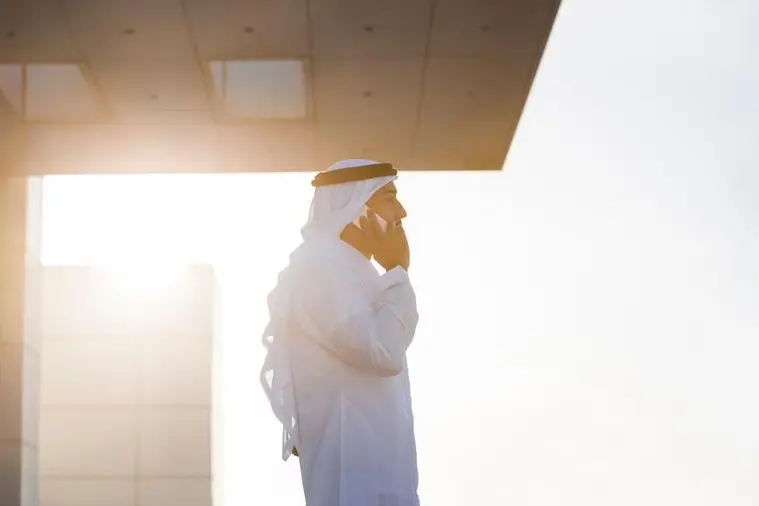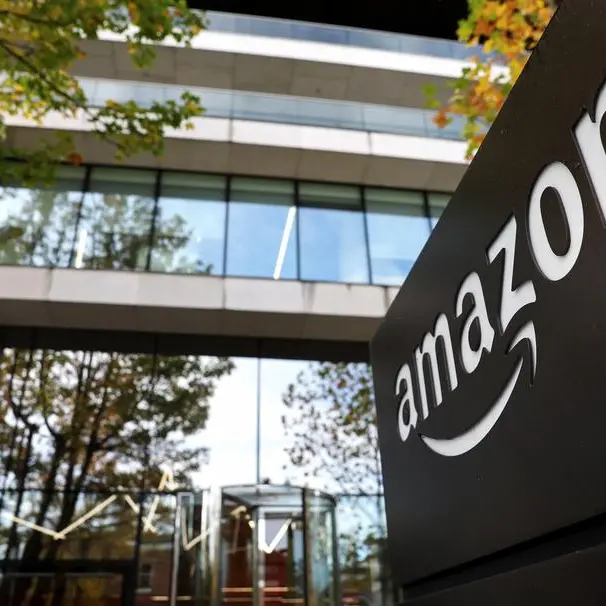PHOTO
The UAE's Telecommunications and Digital Government Regulatory Authority (TDRA) has unveiled an extensive strategy to spearhead research and studies on the advancement of ‘International Mobile Telecommunications’ technology’ (IMT2030), also called the sixth generation of mobile networks (6G).
This initiative is a proactive response to the dynamic landscape of International Mobile Telecommunications (IMT), focusing on detailed technical specifications for the functionality and performance of mobile systems, it said
Furthermore, it aims to address the evolving needs of society and the economic sector, bridging the gap between current communication services and future requirements. The ultimate goal is to foster a comprehensive, digitally integrated, and interconnected way of life in the years ahead.
The release of this roadmap aligns with the decisions made during the Radiocommunication Assembly 2023 (RA-23), hosted by the UAE from Novemebr 13 to17, 2023. During the assembly, a resolution was passed, urging stakeholders in the communications sector to focus on developing radio technical standards and specifications for the sixth generation of the IMT. It is worth noting that the RA-23 endorsed Recommendation (ITU-R M. 2160) pertaining to 6G framework, referred to as (IMT-2030), laying the foundation for the forthcoming development of network standards.
Leadership redefined
Commenting on the roadmap, Eng. Majed Sultan Al Mesmar, Director General, TDRA, said: “The 6G Roadmap aligns seamlessly with the futuristic directives of the UAE. It particularly resonates with the UAE Centennial 2071 and the "We the UAE 2031" vision. These visionary frameworks, characterized by their pillars, aim to enhance the UAE's global position as a hub for the new economy and the establishment of a Forward Ecosystem. At TDRA, in collaboration with the telecom service providers and other entities, is committed to ensuring that 6G becomes a testament to the UAE's continued leadership. It aims for 6G to echo the successes of the previous generations of telecommunications, because of which, our country consistently was in a leading position and inspired numerous others.”
Al Mesmar emphasised: “This initiative aligns with the UAE's unwavering dedication to environmental sustainability, digital inclusion, and enhancing security and privacy measures. Additionally, it supports the UN SDGs, which urge countries to strive earnestly to bridge the digital divide and ensure widespread access to the Internet for the maximum number of individuals.”
Eng. Mohammed Al Ramsi, Deputy Director General, TDRA, confirmed that the announcement of a comprehensive plan to introduce the sixth generation of telecommunications networks reflects TDRA’s dedication and vision to keep up with rapid technological advancements.
He stated: “This plan signifies a turning point in the evolution of telecommunications sector, as the support for 6G networks will unlock new and unprecedented use cases. It will enhance user experiences and facilitate innovative communication between individuals and devices."
Al Ramsi emphasised TDRA’s commitment in collaborating with its partners, to consolidate further the UAE’s leading position in the information and communication technology sector. He stressed the importance of ensuring that the UAE remains a global leader in this vital field and outlined TDRA’s determination to achieve this goal by implementing this ambitious and innovative plan.
The roadmap aligns seamlessly with TDRA’s strategic direction towards advancing infrastructure through state-of-the-art technological methodologies. Paramount emphasis is placed on enhancing digital infrastructure with a particular focus on harnessing the capabilities of 6G. Capabilities encompass integrated sensing, extensive coverage, and the integration of artificial intelligence, thereby fostering comprehensive intelligence. The Roadmap is meticulously designed, taking into account the intricacies associated with promoting environmental sustainability practices, bridging the digital divide, connecting the unconnected, and fortifying privacy and security measures.
According to the plan, 6G is poised to introduce a suite of new capabilities, encompassing applications in artificial intelligence, network virtualisation, sensing, and comprehensive coverage. Simultaneously, the existing capabilities of 5G will undergo enhancements, targeting improved efficiency in frequency spectrum utilization, connection density and traffic management. These advancements aim to optimize performance within specific regions and reduce the response time significantly.
Anticipated advancements in 6G foresee the support of innovative use cases, ranging from the digital transmission of human senses (sight, sound, taste, touch, and smell) worldwide, characterized by low latency and high accuracy. This breakthrough technology is expected to enhance the capabilities of robotics and elevate artificial intelligence. It holds the potential to revolutionize various domains, including autonomous intelligent transportation systems and transformative developments in healthcare, such as remote surgery and diagnostics. The realization of these groundbreaking technologies necessitates a global availability of additional radio frequencies.
Launch in 2030
The roadmap disclosed by TDRA establishes a schedule kicking off in 2024 with the establishment of a committee. This committee's mandate encompasses conducting scientific studies, research, and the development of technical standards and specifications for 6G. Furthermore, it will disseminate these studies on global platforms like the International Telecommunication Union (ITU), alongside collaboration with renowned International Standards and Standardization Institutes (IEEE and 3GPP). Notably, Khalifa University will take the helm of this committee within the UAE, with its membership extending to encompass manufacturers, operators and TDRA.
The roadmap encompasses the potential for conducting 6G experiments to advance the technology within a comprehensive ecosystem through strategic collaborations with industrial, academic, and governmental sectors. TDRA will play a pivotal role in facilitating these experiments by providing the necessary frequencies and regulatory frameworks. This support, coupled with advanced spectrum management practices enabled by the 'ICT Regulatory Sandbox,' will pave the way for the launch and widespread adoption of 6G services in the UAE before 2030.
In 2018, the UAE emerged as the fourth country globally to deploy 5G, marking a pioneering stride in technology. As 5G continues to evolve and enhance its capabilities, the current strategic plans include the ongoing development of the advanced 5G network (5.5G), with a targeted transition to 6G by 2030.
It is important to highlight that the UAE's 6G Roadmap aligns seamlessly with global sustainability goals, actively working towards the reduction of carbon dioxide emissions and energy consumption across diverse industries. This ambitious undertaking reflects the UAE's dedication to upholding its leading position in telecommunications innovation, aiming to deliver high-quality, smart, and secure connectivity to benefit both, its society and economy. - TradeArabia News Sevice
Copyright 2022 Al Hilal Publishing and Marketing Group Provided by SyndiGate Media Inc. (Syndigate.info).





















